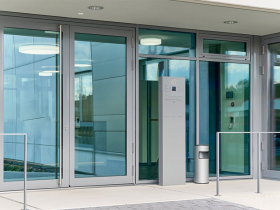The transition from renting to owning a condominium often comes with unexpected financial obligations that catch new owners off guard. These financial surprises can strain budgets and create stress during what should be an exciting first year of ownership. Even in well-managed developments like rivermodern-condo, first-time owners frequently encounter expenses they hadn’t fully anticipated when calculating ownership costs, making financial preparation essential.
Hidden fees emerge
Monthly maintenance fees represent just the beginning of ongoing condo expenses. Many new owners fail to realise these fees typically increase annually, sometimes at rates exceeding inflation. Most associations raise fees 2-5% yearly to keep pace with rising costs, but some implement larger increases to address deferred maintenance or build reserves. Without this knowledge, first-year owners can quickly find their carefully calculated budgets outdated. Move-in fees, elevator reservation charges, and administrative transfer costs frequently surprise new owners at closing or shortly thereafter. Depending on the building’s policies, these one-time expenses may range from nominal administrative charges to several hundred dollars. Some associations also maintain separate fees for amenity access or parking privileges that are not disclosed during the purchase process.
Utilities shock wallets
Many former renters experience sticker shock when transitioning to directly paying all utility costs as condo owners:
- HVAC inefficiencies in older buildings can drive heating and cooling costs far higher than expected
- Water and sewer charges sometimes appear on tax bills rather than as monthly utilities, creating surprise biannual expenses
- Cable/internet packages often cost more than anticipated after promotional pricing ends
- Common area electricity allocations may add costs beyond what owners experience in their units
The timing of these expenses frequently compounds the issue. While mortgage payments follow a predictable monthly schedule, certain utilities and tax assessments operate on quarterly or biannual cycles, creating periodic spikes in monthly outflows that can disrupt cash flow for unprepared owners.
Insurance complexities
Insurance costs often exceed expectations for first-time condo owners who don’t fully understand the relationship between the association’s master policy and their required individual coverage. Many discover their lender requires more extensive coverage than initially budgeted, especially for contents, betterments, and liability protection. Deductibles on association master policies have risen substantially in recent years, sometimes reaching $10,000-$25,000 per incident. When damage originates from within a unit, owners may be responsible for covering this deductible even when it extends beyond their unit. This potential liability often necessitates additional coverage, increasing premium costs beyond initial estimates.
Maintenance reality bites
The actual cost of maintaining a condo often exceeds new owners’ projections. While association fees cover exterior and standard area maintenance, unit interiors remain the owner’s responsibility. Systems like water heaters, HVAC units, and appliances inevitably require service or replacement, creating expenses that renters previously avoided. Cosmetic updates and furnishing needs frequently consume more resources than anticipated as well. New owners often discover their existing furniture doesn’t fit well in the new space, or that previous owners concealed issues like worn flooring with strategic furniture placement. Small improvement projects commonly expand in scope and cost once initiated, quickly exceeding initial budgets.
These maintenance surprises can be especially challenging in the first year when cash reserves may be depleted from the down payment and closing costs. Creating a dedicated maintenance fund before purchasing helps mitigate these challenges, allowing new owners to address issues without financial strain.











